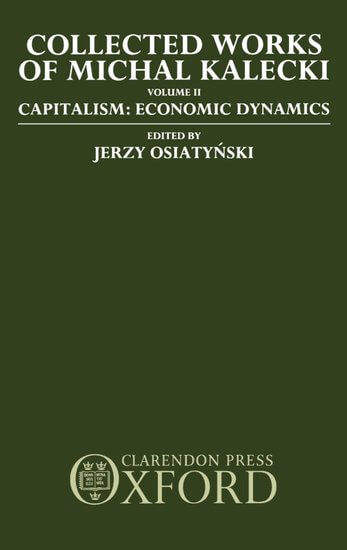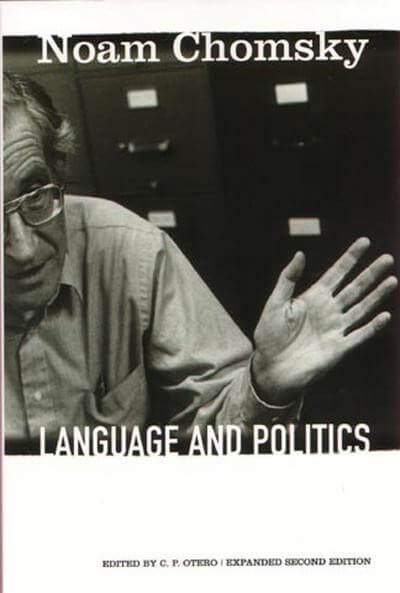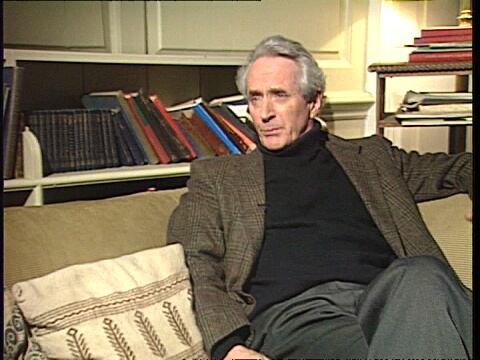… a wage rise showing an increase in the power of the trade unions leads-contrary to the precepts of classical economics-to an increase in employment. Conversely, a fall in wages showing a weakening in their bargaining power leads to a decline in employment. The weakness of trade unions in a depression manifested in permitting wage cuts contributes to the deepening of unemployment rather than to relieving it.
– Michal Kalecki, 1971 in Class Struggle And The Distribution Of National Income, in Collected Works Of Michal Kalecki, Volume II. Capitalism: Economic Dynamics
Monthly Archives: December 2018
Noam Chomsky On Propaganda And Indoctrination
Recently, Noam Chomsky turned 90, and Current Affairs reminded us of this wonderful section from an interview from 1984, on propaganda and indoctrination:
To use the term “double standard” for our approach is to really abuse the term; it goes beyond anything that you could call a double standard. It’s almost a kind of fanaticism. It’s a reflection of the extreme success of indoctrination in American society. You don’t have any other society where the educated classes, at least, are so effectively indoctrinated and controlled by a propaganda system.
Let’s talk about that propaganda system. You’ve referred many times to the “state propaganda apparatus.” What role do the media play in promoting and serving state interests?
One should be clear that in referring to the “state propaganda apparatus” here I do not mean that it comes from the state. Our system differs strikingly from, say, the Soviet Union, where the propaganda system literally is directed and controlled by the state. We’re not a society which has a Ministry of Truth which produces doctrine which everyone then must obey at a severe cost if you don’t. Our system works much differently and much more effectively. It’s a privatized system of propaganda, including the media, the journals of opinion and in general including the broad participation of the articulate intelligentsia, the educated part of the population. The more articulate elements of those groups, the ones who have access to the media, including intellectual journals, and who essentially control the educational apparatus, they should properly be referred to as a class of “commissars.” That’s their essential function: to design, propagate and create a system of doctrines and beliefs which will undermine independent thought and prevent understanding and analysis of institutional structures and their functions. That’s their essential social role.
I don’t mean to say they’re conscious of it. In fact, they’re not. In a really effective system of indoctrination the commissars are quite unaware of it and believe that they themselves are independent, critical minds. If you investigate the actual productions of the media, the journals of opinion, etc., you find exactly that: a very narrow, very tightly constrained and grotesquely inaccurate account of the world in which we live.
This is quite relevant in Economics, where monetary theorists play the role of “commissars”. The part on being conscious of it is debatable, but I will leave that for another time!
Happy birthday, Noam Chomsky!
Rare Wynne Godley Video Clips
You might be aware of the hour-long Wynne Godley’s interview with Alan Mcfarlane from 2008 titled, Interview On The Life And Work Of Wynne Godley. But there’s a 90-second clip and a 19-second clip I found from 1993 on Getty Images with the descriptions:
Budget discussions
Budget discussions; INT CMS Prof Wynne Godley (Cambridge University) CMS Prof David Currie (London Business School) Cambridge CMS Prof Wynne Godley (Cambridge University) intvw SOF – Doubtful whether economic turn around will take place as too many people do not have the money/ unemployment is rising and the devaluation will bring about increase in prices/ the ’81 recovery was a dead end/ it was a consumer boom that ended in disaster London CMS Prof David Currie (London Business School) intvw SOF – Can be sure that output will increase but will not feel like a recovery/ unemployment will continue to rise/ ‘Feel Good’ factor could take a year to find its place
and
Budget discussions
Budget discussions; Cambridge CMS Prof Wynne Godley (Cambridge University) intvw SOF – It would take 2-3 percent growth to bring down unemploment [sic] and Govt state it will be one percent
Enjoy!
A recent UNCTAD/GDAE working paper. Abstract:
This paper proposes to revisit the debate on trade and investment agreements (TIAs), development and inequality, looking at the role of Global Value Chains (GVCs) and transnational corporations (TNCs). It first presents stylized facts about trade and investment (agreements), declining global economic growth and rising inequality under the latest round of globalization. It then provides a long-run perspective on the mixed blessings of external opening, summarizing some key contributions of the mainstream literature, which are converging with long-standing research findings of more heterodox economists, and the eroding consensus today. Based on this stock-taking, it takes a fresh critical look at the TIAs-GVCs-TNCs nexus and their impact. Using data on value-added in trade and new firm-level data from the consolidated financial statements of the top 2000 TNCs going back to 1995, it examines whether the fragmentation of production along GVCs led to positive structural change or rather stimulated unsustainable trends in extractive and FIRE sectors. It then turns to the role of TNC-driven GVCs as a vehicle for economic concentration. Finally, it presents evidence linking TIAs and their correlates to rising inequality. Key findings include the fact that the ratio of top 2000 TNCs profits over revenues increased by 58 percent between 1995 and 2015. Moreover, the rise in top 2000 TNCs profits accounts for 69 percent of the 2.5 percentage points decline in the global labour income share between 1995 and 2015, with the correlation coefficient between annual changes in both variables as high as 0.82. The paper concludes by calling for a less ideological policy debate on TIAs, which acknowledges the mixed blessings of external financial and trade opening, especially their negative distributional impact and destabilizing macro-financial feedback effects, which both call for policy intervention. As an alternative to short-sighted protectionism, it further discusses possible options for anticipating undesirable effects arising from TIAs (e.g. rising carbon emissions, economic instability, inequality, etc.) and addressing those in TIAs themselves.


